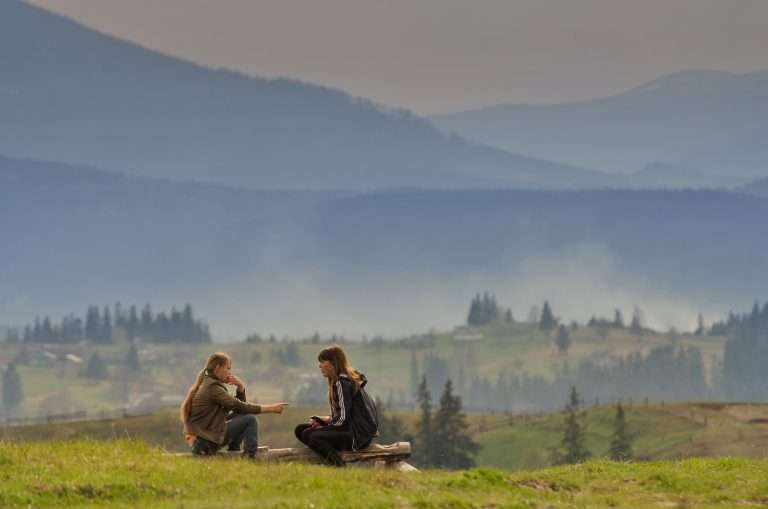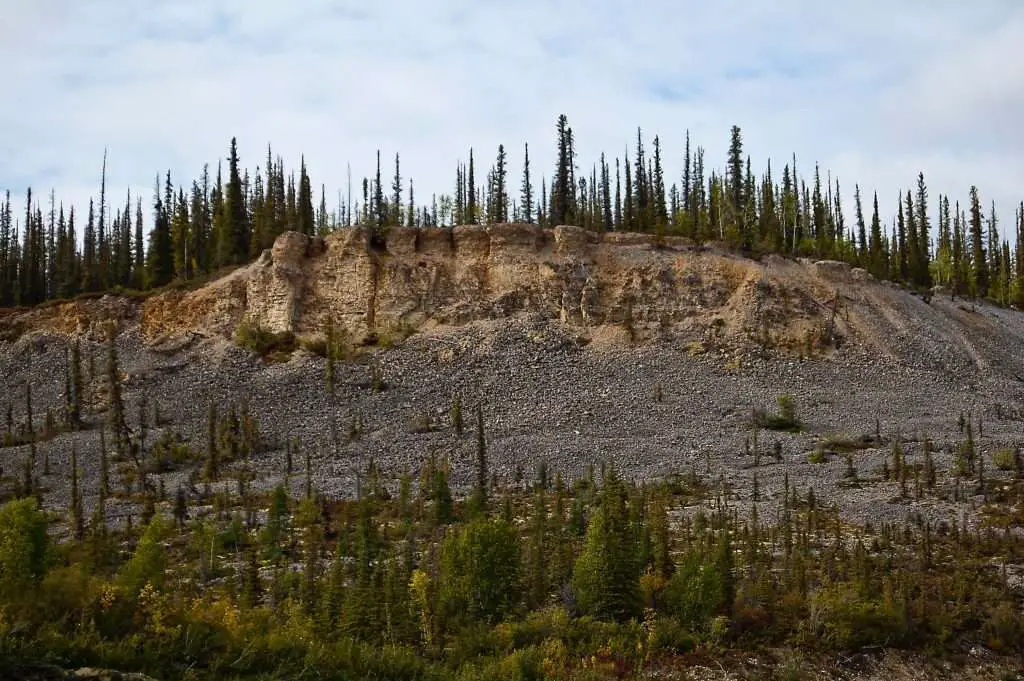Living off the grid in the harsh climate of the Northwest Territories can be a daunting yet rewarding experience. With its subarctic climate, extreme winters, and limited options for growing crops and raising livestock, survival in this northern province requires resilience and resourcefulness. The population may be small, but the region has seen an increase in tourism in recent years, making it a potential income source for some residents. Living off the grid in this province often involves minimalist practices, relying on natural resources like solar and wind power. Despite the challenges, freshwater availability is abundant, and the diverse wildlife, including wood bison and caribou, adds to the unique appeal of this remote area. However, limited road access, high cost of living, and potential natural disasters are aspects that should be taken into consideration for those wishing to embrace a life off the grid in this beautiful yet unforgiving part of Canada.

Challenges of living off the grid in the Northwest Territories
Living off the grid in the Northwest Territories presents a unique set of challenges. The first and foremost challenge is the harsh climate and harsh winters that this northern province experiences. The Northwest Territories has a subarctic climate, which means that it is characterized by extremely cold winters and relatively high temperatures during the summers. The winters here can be particularly brutal, with temperatures dropping well below freezing and heavy snowfall. This can make it challenging to stay warm and comfortable without access to traditional heating and electricity.
Another challenge faced by those living off the grid in the Northwest Territories is the limited options for agriculture and livestock. Due to the presence of wild animals such as wood bison, caribou, muskox, and black bears, it can be difficult to establish and maintain crops and livestock. These animals can pose a threat to the livelihoods of off-grid residents, as they can damage or destroy crops and pose a danger to livestock.
The presence of wild animals also brings about safety concerns. While the wildlife in the Northwest Territories is undoubtedly fascinating, it can also be dangerous. Residents living off the grid must be vigilant and cautious to avoid encounters with these animals. Taking precautionary measures such as securing food and waste properly can help mitigate the risks associated with the presence of wild animals.
Additionally, the limited road access in many parts of the Northwest Territories poses a challenge for off-grid residents. Some communities are only accessible by air or water, as they are not connected to the road network. This reliance on airplanes for transportation can be both expensive and inconvenient. Residents may need to rely on scheduled flights or private charters to access essential services or travel to other locations, making it difficult to maintain a sustainable off-grid lifestyle.
Living off the grid in the Northwest Territories can also be costly. The cost of living in this remote province is generally higher compared to more populated areas. This is due to the need to import goods and resources, which can result in higher prices. Off-grid residents must account for these additional costs when planning and budgeting for their sustainable lifestyle.
Lastly, natural disasters are another challenge that off-grid residents may face in the Northwest Territories. The province is prone to various natural disasters, including floods, avalanches, blizzards, storms, and wildfires. These events can disrupt daily life, damage infrastructure, and pose risks to personal safety. Living off the grid requires careful consideration and preparation to mitigate the impacts of these natural disasters. Adequate shelter, emergency supplies, and a solid emergency response plan are necessary to ensure the safety and well-being of off-grid residents during such events.
Population and income sources
The Northwest Territories has a relatively small population, with approximately 45,000 people calling it home. This low population density can present both advantages and challenges for those seeking an off-grid lifestyle. On the one hand, the limited number of people can create a sense of solitude and tranquility for off-grid residents. On the other hand, the small population size can result in limited access to services and resources.
When it comes to income sources, tourism plays a significant role in certain areas of the Northwest Territories. With its stunning landscapes, unique wildlife, and rich Indigenous cultures, the province has been attracting an increasing number of tourists in recent years. This has provided opportunities for off-grid residents to engage in tourism-related activities and generate income through services such as eco-tourism, guiding, and accommodations.
Those living off the grid in the Northwest Territories can harness the natural beauty and resources of the region to attract tourists and create sustainable income sources. By offering unique experiences and promoting responsible tourism practices, off-grid residents can contribute to the local economy while maintaining their preferred lifestyle.

Practices and resources for off-grid living
Living off the grid in the Northwest Territories often involves embracing minimalist practices and relying on natural resources for survival. Off-grid residents must carefully manage their resources, including water, food, and energy, in order to sustain their lifestyles in a remote and challenging environment.
One valuable resource that off-grid residents can harness is solar power. The Northwest Territories experiences a relatively high number of sunlight hours during the summer months, providing ample opportunity for solar energy generation. By installing solar panels and utilizing storage systems, off-grid residents can have a reliable source of clean energy to power their daily activities and reduce their reliance on non-renewable energy sources.
Wind power is another viable option for generating electricity off the grid. The Northwest Territories experiences strong and consistent wind patterns, especially in certain regions. By harnessing the power of the wind through wind turbines, off-grid residents can tap into a renewable energy source and further reduce their environmental impact.
Freshwater availability is abundant in the Northwest Territories, with numerous lakes and rivers throughout the region. Off-grid residents can take advantage of this abundance by implementing water collection and filtration systems. This ensures a steady supply of clean and safe drinking water for their daily needs.
Embracing minimalist practices is crucial for off-grid living in the Northwest Territories. By adopting a mindset focused on reducing consumption and waste, off-grid residents can make the most of the limited resources available to them. This can include practices such as composting, recycling, and reusing materials to minimize their environmental footprint.
Climate and seasonal variations
The climate in the Northwest Territories is a defining factor for off-grid living. The province experiences a subarctic climate, characterized by long, cold winters and relatively short, mild summers. The extreme cold temperatures during winter can present significant challenges for those living off the grid. It requires careful planning and preparation to ensure a comfortable and safe living environment.
During the winter months, temperatures in the Northwest Territories can drop well below freezing, often reaching -40 degrees Celsius or colder. The frigid temperatures require off-grid residents to have reliable heating sources and insulation in their homes. Wood-burning stoves and fireplaces are commonly used to provide warmth, but alternative heating methods such as propane or pellet stoves may also be utilized. Proper insulation and weatherization of homes are essential to conserve heat and energy.
Summers in the Northwest Territories are relatively brief but can bring warmer temperatures. During this season, off-grid residents have opportunities to engage in outdoor activities and take advantage of the more favorable weather conditions. However, even during the summer months, temperatures rarely reach the levels experienced in more southern regions. It is essential to plan and adapt to the seasonal variations to ensure a sustainable off-grid lifestyle in this climate.

Wildlife in the Northwest Territories
The Northwest Territories is home to a diverse range of wildlife, each playing a unique role in the ecosystem. For those living off the grid, these animals can be a source of both wonder and potential challenges. It is important to have an understanding and respect for the wildlife in the region to coexist harmoniously with them.
One iconic animal in the Northwest Territories is the wood bison. These majestic creatures can be found in various parts of the province, particularly in Wood Buffalo National Park. They are the largest land mammals in North America and contribute to the biodiversity of the region. However, their size and presence can pose challenges for off-grid residents, especially when it comes to protecting crops and livestock.
Caribou are another prominent species in the Northwest Territories. These beautiful animals undertake long migrations across vast distances, making them an integral part of the ecological balance in the region. While observing caribou in the wild can be a remarkable experience, they can also be a potential threat to off-grid residents’ agricultural endeavors.
Muskox, with their thick fur and distinctive appearance, are well-adapted to the harsh climate of the Northwest Territories. They roam the tundra and can be encountered in various parts of the province. These animals add to the natural beauty of the region and are a testament to the resilience of wildlife in extreme conditions.
Black bears are also present in the Northwest Territories. These apex predators play a vital role in the ecosystem and contribute to the overall balance of the wildlife population. However, as with any bear species, it is crucial for off-grid residents to take precautions and practice bear safety to avoid potential conflicts.
Understanding the behavior and patterns of these animals is essential for off-grid residents to coexist with them safely. Taking measures such as securing food and waste properly, using bear-resistant containers, and avoiding potential confrontations can help minimize conflicts and promote a peaceful coexistence with the wildlife of the Northwest Territories.
Limited road access and transportation
One of the significant challenges of living off the grid in the Northwest Territories is the limited road access in many parts of the province. Some communities are not connected to the road network and can only be reached by air or water. This reliance on airplanes for transportation can significantly impact off-grid residents’ mobility and access to essential services.
Air travel is often the most common mode of transportation between communities in the Northwest Territories. Residents may need to rely on scheduled flights or private charters to travel to medical appointments, access education, or connect with other communities. The cost and availability of air travel can be a significant barrier for those living off the grid, particularly in remote locations.
Water transportation is another option for off-grid residents, with many communities situated along rivers and lakes. Boats and canoes can be used to navigate these waterways, providing an alternative means of travel between communities. However, water travel is generally limited to the warmer months when bodies of water are not frozen.
The limited road access in the Northwest Territories demands careful planning and consideration for off-grid residents. They must ensure they have alternative methods of transportation and establish relationships with transportation providers to secure reliable and timely access to essential resources and services.
The cost of living in the Northwest Territories
Living off the grid in the Northwest Territories can come with a higher cost of living compared to more populated areas. This higher cost is primarily due to the need for importing goods and resources, as well as the additional expenses associated with off-grid living.
The remote location of the Northwest Territories makes it challenging and expensive to transport goods into the region. Since many essential items are not produced locally, residents must rely on importing goods, which can significantly increase their cost. This includes everything from food and household supplies to construction materials and equipment.
Off-grid residents also need to consider the cost of setting up and maintaining their off-grid systems. This can include purchasing and installing solar panels, wind turbines, water filtration systems, and other equipment necessary for self-sufficiency. While these investments can lead to long-term savings and reduced reliance on external resources, the initial costs can be significant.
In addition to the cost of goods and resources, off-grid residents must also factor in ongoing expenses such as fuel for generators, maintenance of off-grid systems, and emergency preparedness supplies. These expenses, when combined with the higher prices for goods and services in the region, can contribute to the overall higher cost of living in the Northwest Territories.
It is crucial for off-grid residents to carefully plan and budget for their expenses and identify ways to reduce costs where possible. This can include implementing energy-saving measures, growing their own food, and embracing a frugal lifestyle to make the most of the resources available.
Job opportunities
The Northwest Territories offers job opportunities in various industries, which can be attractive to those seeking an off-grid lifestyle. Some of the prominent industries in the region include mining, oil, gas, and forestry.
The mining industry plays a significant role in the economy of the Northwest Territories. The province is rich in mineral resources, including diamonds, gold, and base metals. Job opportunities in mining can range from exploration and extraction to processing and support services. Many off-grid residents may find employment in this industry, taking advantage of the region’s natural resources while maintaining their preferred lifestyle.
The oil and gas industry is another major sector in the Northwest Territories. The province has substantial reserves of oil and natural gas, providing employment opportunities in exploration, production, and related services. Off-grid residents with experience or interest in the energy sector may find job opportunities in this industry, contributing to the region’s energy resources.
Forestry is also a significant industry in the Northwest Territories, with vast forests covering a significant portion of the region. The forestry sector offers employment opportunities in timber harvesting, processing, and related services. Off-grid residents with skills and knowledge in forestry practices may find opportunities to work in sustainable forestry management or related fields.
These industries can provide off-grid residents with income and employment opportunities while maintaining their preferred lifestyle. It is important, however, to carefully consider the potential impacts of these industries on the environment and local communities. Sustainable practices and responsible resource management should always be a priority.

Natural disasters in the region
The Northwest Territories is prone to various natural disasters that can pose significant challenges for off-grid residents. Being prepared and having plans in place is crucial to mitigate the impacts of these events and ensure personal safety.
Floods are one of the natural disasters that can occur in the Northwest Territories. With its many rivers and lakes, the province is susceptible to increased water levels during heavy rainfall or rapid snowmelt. Floods can damage infrastructure, disrupt essential services, and pose risks to personal safety. Off-grid residents must be prepared for potential flooding events, such as having emergency supplies, creating evacuation plans, and implementing flood mitigation measures.
Avalanches are another hazard in the mountainous regions of the Northwest Territories. The province’s rugged terrain and significant snowfall make it prone to avalanches, especially during the winter months. Off-grid residents in these areas must take precautions to minimize the risks associated with avalanches, such as staying informed about weather conditions, conducting avalanche safety training, and avoiding high-risk areas.
Blizzards and storms are common in the Northwest Territories, particularly during the winter season. These events can bring strong winds, heavy snowfall, and extremely cold temperatures. Off-grid residents must have appropriate shelter, emergency supplies, and heating sources to withstand these harsh conditions. Staying informed about weather forecasts and observing safety precautions is essential to prevent unnecessary risks and ensure personal well-being.
Wildfires can also occur in the Northwest Territories, primarily during the summer months. Dry and hot conditions can contribute to the spread of wildfires, potentially posing a threat to off-grid residents and their properties. Taking preventative measures such as maintaining a fire-safe perimeter around homes, having appropriate fire extinguishing equipment, and following fire safety guidelines can help minimize the risk of wildfires.
Living off the grid in the Northwest Territories requires a thorough understanding of the potential natural disasters in the region and active preparedness. By implementing appropriate measures, off-grid residents can manage the risks associated with these events and ensure the safety and well-being of themselves and their communities.
Living off the grid in the Northwest Territories comes with its own set of unique challenges and rewards. The harsh climate, limited road access, and reliance on natural resources require careful planning and resource management. However, the abundant wildlife, natural beauty, and job opportunities in certain industries make the province an attractive place for those seeking an off-grid lifestyle. With the right preparation, determination, and respect for the environment, off-grid residents can thrive in the majestic lands of the Northwest Territories.



